About Opioid Recovery Services
If you or a loved one is struggling with an opioid addiction, we want you to know that you are not alone. At Opioid Recovery Services, we offer a comprehensive approach to treatment that includes both traditional and innovative therapies. Our goal is to help you or your loved one build a foundation for long-term recovery.
We offer a variety of services that are designed to meet the unique needs of each individual. Our dual diagnosis program is designed to address both addiction and any underlying mental health disorders. We also offer specialized programs for young adults and for LGBTQ individuals.
All of our programs are based on the latest research on addiction and recovery. We use cognitive behavioral therapy to help our clients identify and change the thoughts and behaviors that contribute to their addiction. And our trauma therapy program is designed to help those who have experienced trauma heal the emotional wounds that may be driving their addiction.
We offer both inpatient and outpatient services, so that you can choose the level of care that is right for you. And we accept most major insurance plans.
If you or someone you love is struggling with an opioid addiction, please call us today. We are here to help.
Addiction Treatment Programs
Dual Diagnosis
People with a dual diagnosis may be using substances to self-medicate. A high-quality rehab in New York can address both issues and help you reach recovery. Along with traditional evidence-based substance use treatment, clients may receive mental health counseling, medication, peer support, and other tools to help them manage their mental health.
Opioid Addiction
A treatment program in New York can give you the tools and skills you need to overcome opioid addiction and reclaim your life. These treatment programs offer detox, inpatient treatment, and outpatient care. You may receive individual, group, and family counseling, peer support, and classes in essential life skills.
Drug Rehab
Drug rehab in New York provides professional treatment to help clients overcome substance misuse and build a drug-free life. High-quality treatment lays a foundation for sobriety and helps prevent relapses by giving you new ways of thinking, better coping skills, and a better understanding of key life skills such as emotional regulation and communication.
Young Adult Rehab
When people join a young adult rehab in New York, they learn key life skills while receiving treatment. Along with traditional evidence-based treatment, clients may receive educational support, employment training, and help securing housing.
Adult Program
Adult programs in New York address a wide range of substance use issues while also helping clients with concerns such as raising children or building a career. Along with traditional evidence-based treatment, clients may receive employment support, parenting classes, and help securing housing.
Men's Rehab
A men’s rehab in New York addresses the unique needs men have and allows them to build relationships in a gender-specific environment. Along with traditional evidence-based treatment, clients may receive education on topics relevant to men, such as fatherhood, healthy relationships, emotional vulnerability, and more.
Women's Rehab
Those who join a women’s rehab program in New York are given training in key life skills to help them address their unique challenges. Along with traditional evidence-based treatment, clients may receive help with childcare, classes in parenting, and advice about being a working mother and building healthy relationships.
LGBTQ Friendly Rehab
For those who identify as LGBTQ+, an LGBTQ+ friendly rehab in New York can give you the understanding and safety you need to break free from addiction. LGBTQ+ friendly programs may include detox, inpatient treatment, outpatient care, aftercare services, and more. They will be tailored to take into account your unique individual needs.
Insurance Coverage
Self-pay options
There are many ways to pay for rehab in New York, including self-pay. When you pay yourself, you have maximum flexibility to choose the center you most prefer. You can write a check, get a medical loan from a bank or credit union, or send money electronically. The fee structure may vary depending on the level of care.
Medicaid
Paying for rehab in New York can be done in multiple ways, including using Medicaid if you qualify. Medicaid covers multiple levels of care, and you may have no out-of-pocket costs. However, you’ll need to choose a treatment center that accepts Medicaid.
Sliding scale payment assistance
Finding a rehab in New York with a sliding scale payment plan can help make treatment more affordable. You qualify for a lower fee for detox, inpatient treatment, or outpatient care based on your income and family size.
Levels of Care
- 1
Outpatient Rehab
If you’ve recently finished a residential treatment program, participating in outpatient treatment in New York can help you reinforce and practice your new habits. Outpatient treatment includes multiple approaches, including cognitive behavioral therapy (CBT), motivational interviewing (MI), and holistic therapy options.
Therapies
Cognitive Behavior Therapy
Cognitive behavioral therapy in New York involves being aware of how your thoughts are connected to your feelings and behavior. CBT is a common part of evidence-based treatment programs and may be a part of inpatient treatment, outpatient care, or both. CBT can be empowering as you learn to manage your thoughts and emotions rather than being overwhelmed by them.
Trauma Therapy
Trauma is an emotional response to a terrible event, and some people use substances to numb those emotions. Trauma-informed therapy in New York can help you address what happened and consciously create a healthier response. Trauma-informed therapy sessions generally last 60 to 90 minutes and may include discussing a specific event, talking about emotional triggers, and learning emotional regulation and cognitive restructuring skills.
Accreditations
Location
Contact Opioid Recovery Services
Top Drug Rehab Centers in New York
-
 New York
New YorkSaint Josephs ATRC Saranac Lake Outpatient Clinic
12983 Saranac Lake, New York 12983
-
 New York
New YorkNewYork Presbyterian Westchester Division
Nichols Cottage Basement Area 21 Bloomingdale Road White Plains, New York 10605
-
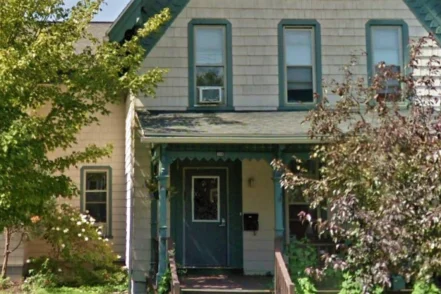 New York
New YorkCredo Community Center Mens Aftercare Community Residence
138 Winthrop Street Watertown, New York 13601
-
 New York
New YorkSeafield Outpatient Mineola
110 Main Street Mineola, New York 11501
-
 New York
New YorkLong Island Center for Recovery LICR
320 West Montauk Highway Hampton Bays, New York 11946
-
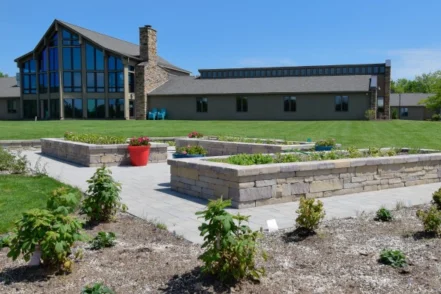 New York
New YorkTully Hill Treatment and Recovery
5821 Route 80 Tully, New York 13159
-
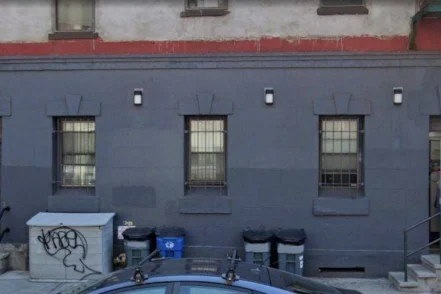 New York
New YorkLaFayette Medical Approach Outpatient
233 Lafayette Street New York, New York 10012
-
 New York
New YorkParallax Center
145 East 32nd Street New York, New York 10016
-
 New York
New YorkRealization Center Brooklyn
175 Remsen Street Brooklyn, New York 11201
-
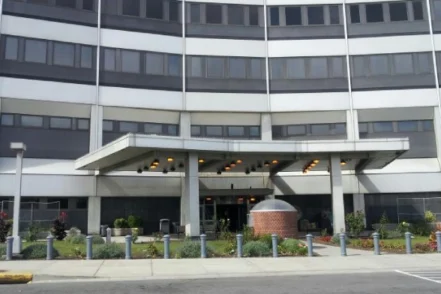 New York
New YorkBronx VA James J Peters Medical Center
130 West Kingsbridge Road Bronx, New York 10468
-
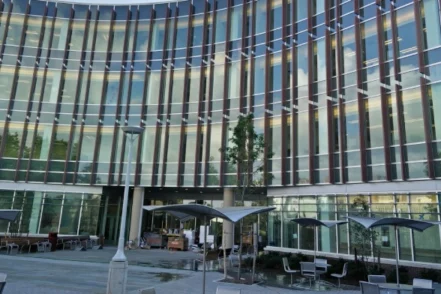 New York
New YorkBronx Addiction Treatment Center
1500 Waters Place, Building 13 Bronx, New York 10461
-
 New York
New YorkElmhurst Hospital Center Elmhurst
7901 Broadway Street Elmhurst, New York 11373
-
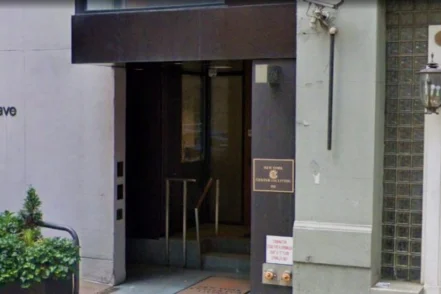 New York
New YorkNew York Center for Living
226 East 52Nd Street New York, New York 10022
-
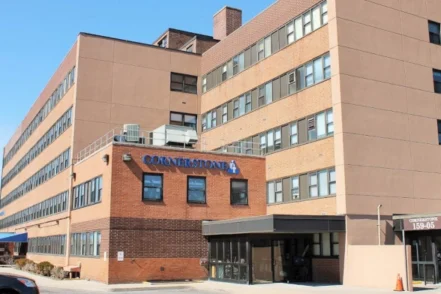 New York
New YorkCornerstone Fresh Meadows
159-05 Union Turnpike Fresh Meadows, New York 11366
Other Popular New York Cities
Browse by New York cities
- Wainscott
- Walden
- Walton
- Wantagh
- Wappingers Falls
- Warsaw
- Waterloo
- Watertown
- Watkins Glen
- Waverly
- Webster
- Wellsville
- West Babylon
- West Haven
- West Haverstraw
- West Hempstead
- West Seneca
- Westbury
- Westhampton Beach
- Westons Mills
- White Plains
- Willard
- Williston Park
- Wingdale
- Woodmere
- Woodside
- Woodstock
- Wyandanch

